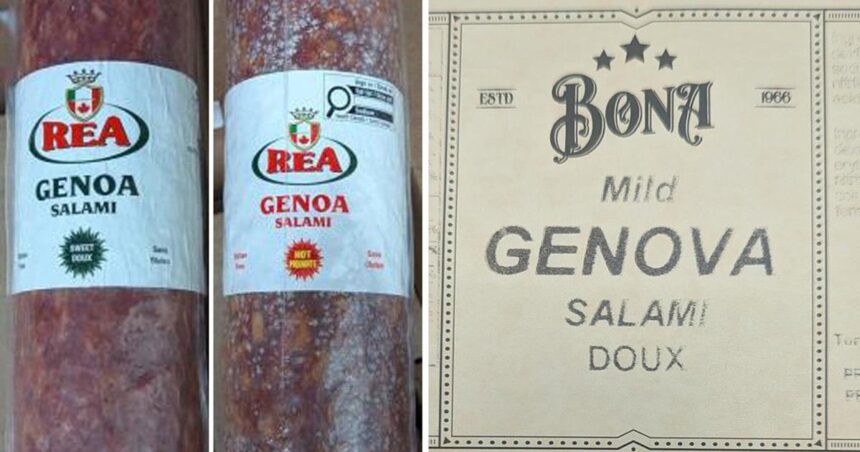In what’s becoming a growing food safety concern, at least 72 people across Canada have fallen ill from salmonella linked to recalled salami products, with several cases confirmed here in Toronto. The Public Health Agency of Canada confirmed yesterday that the outbreak has now spread to six provinces, with Ontario reporting the highest number of cases.
Walking through St. Lawrence Market yesterday morning, I noticed several vendors had already pulled potentially affected products from their shelves. Mario Fiorucci, owner of The Healthy Butcher, told me his shop wasn’t affected but expressed concern for smaller specialty shops.
“Food safety is the foundation of everything we do,” Fiorucci said. “When something like this happens, it impacts consumer trust across the entire specialty meat sector, even for those of us with rigorous safety protocols.”
The Canadian Food Inspection Agency initially announced recalls of certain salamis from Venice Bakery Ltd. and Santa Lucia brand products two weeks ago. Yesterday’s update expanded the recall to include additional products and manufacturing dates.
Toronto Public Health spokesperson Lenore Richards confirmed that several Toronto residents are among those affected. “We’re working closely with provincial and federal partners to monitor the situation,” she said. “Anyone experiencing symptoms after consuming these products should contact their healthcare provider.”
According to Health Canada data, symptoms typically appear 6 to 72 hours after consumption and can include fever, chills, diarrhea, abdominal cramps, headache, nausea, and vomiting. While most people recover without treatment within a week, salmonella can pose serious risks to young children, pregnant women, the elderly, and those with compromised immune systems.
Dr. Naveed Malik, an infectious disease specialist at Toronto General Hospital, explained why processed meats can be vulnerable to contamination. “Salami undergoes fermentation rather than cooking, which means harmful bacteria might survive if proper acidification and curing processes aren’t followed precisely,” he told me.
This outbreak follows a troubling pattern of food recalls in Canada. Data from the Canadian Food Inspection Agency shows a 12% increase in Class 1 (high-risk) food recalls over the past year.
At Fiesta Farms on Christie Street, manager Teresa Spinelli was helping customers navigate which products remained safe to purchase. “We’ve removed all affected items and posted the recall notices prominently,” she said. “We’re also offering refunds to anyone who purchased these products, even without a receipt.”
For Toronto’s vibrant Italian community, the recall hits particularly hard. The city’s Little Italy and numerous Italian specialty shops have built reputations on quality imported and locally-made salamis and cured meats.
Toronto food safety consultant Jennifer Rodgers points to potential systemic issues. “We’re seeing more of these outbreaks partly because our detection and reporting systems have improved, but also because supply chains have become increasingly complex,” she explained. “One contamination point can affect products distributed across multiple provinces.”
The CFIA is advising consumers to check their refrigerators and dispose of recalled products or return them to the place of purchase. They’ve published a comprehensive list of affected products on their website.
For those concerned about identifying safe alternatives, Dr. Malik recommends thoroughly cooking all meats when possible and being particularly cautious with ready-to-eat products that don’t require further cooking.
As this outbreak investigation continues, it underscores the delicate balance between traditional food production methods and modern safety standards – something Toronto’s diverse food community navigates daily.







